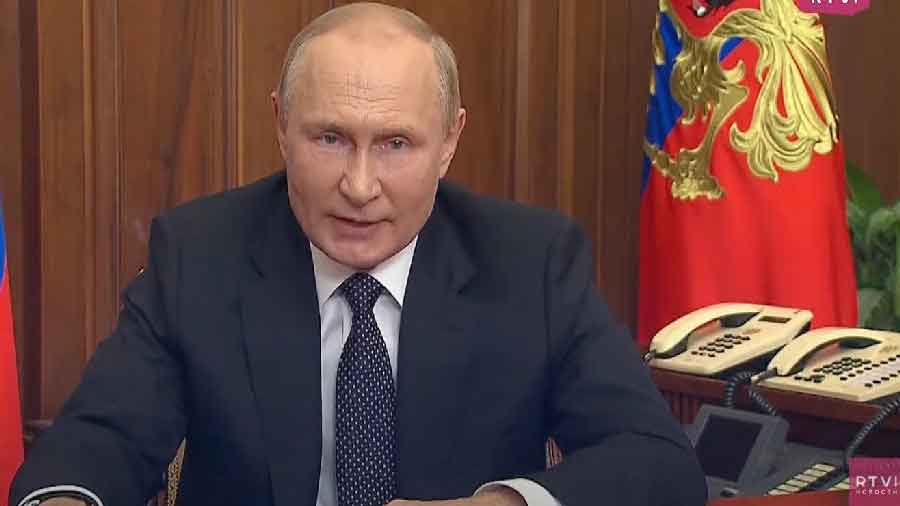The Russian president, Vladimir Putin, is not known to often meet foreign officials below the rank of head of government or foreign minister. His recent decision to meet India’s national security adviser, Ajit Doval, is, therefore, significant in what it says about New Delhi-Moscow relations and the continued prominence of Mr Doval in the government of Prime Minister Narendra Modi. India’s national security adviser was in Moscow for a meeting of regional security bosses on the situation in Afghanistan where the Taliban has not only rolled back the rights of women and minorities but is also locked in an increasingly intense battle with other militant groups. Mr Putin met the security heads. But the following morning, he also summoned Mr Doval for a rare one-on-one meeting. To be sure, New Delhi and Moscow are old friends. Yet, while India and Russia are tight-lipped about details of the meeting, it comes at a time when relations between the countries have grown even more important for both. Amid the war in Ukraine, Russia’s fractured ties with the West and its allies have left it increasingly dependent on traditional partners like India as it seeks to avoid diplomatic isolation. Equally, India has benefited economically from Russia’s crisis, purchasing subsidised oil and fertilisers that the West will not buy.
The result is that the war and Western sanctions have ironically helped India and Russia address their historic failure to grow their economic relationship. In recent months, Russia has surged to the fourth spot among India’s trading partners. However, Mr Doval’s meeting with Mr Putin, a former spy himself, is also a reflection of the Indian official’s role in Mr Modi’s administration. There are whispers in diplomatic circles that Mr Doval has greater access to Mr Modi — and perhaps enjoys more trust — than many cabinet ministers. Mike Pompeo, the former secretary of state of the United States of America, has referred to it in his recent book. It is also not a secret that both Mr Putin and Mr Modi harbour the sense that the West is unfair to them. Consider the Narendra Modi government’s crackdown on a BBC documentary recalling questions over the 2002 Gujarat riots, and suggestions that the film had a ‘colonial’ mindset. It only helps New Delhi remind Washington and other Western capitals that India has other partners it can also count on. Indeed, that balancing act is a success story of Mr Modi’s foreign policy. It is one that must continue.

